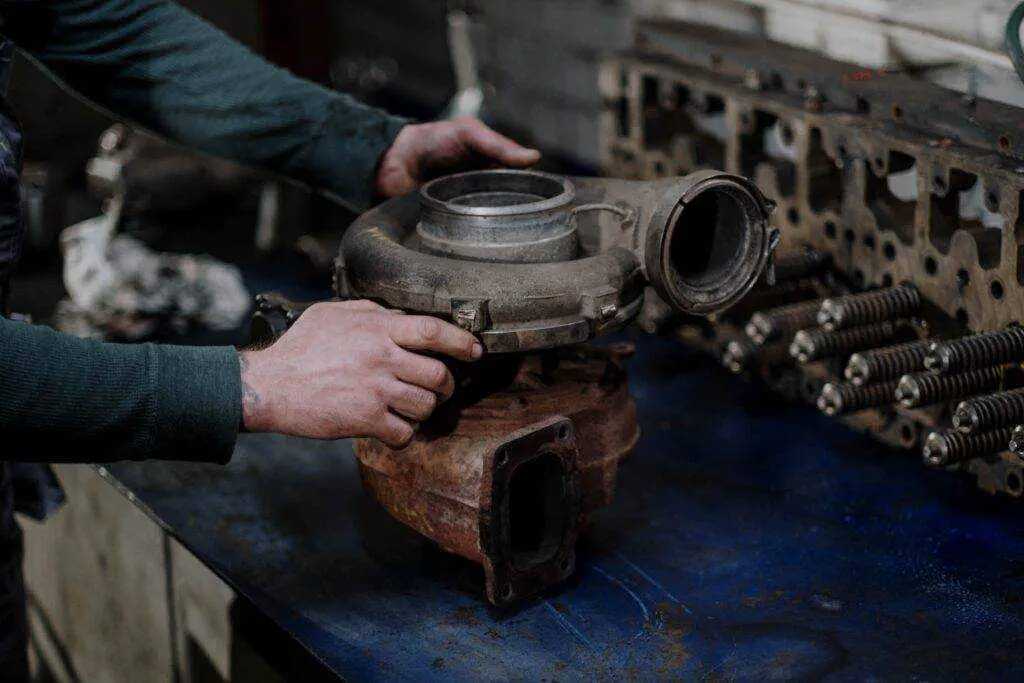That acrid car smells like burning oil after an oil change can be alarming. While some post-service smell is expected from residual spilled oil, persistent burning odors indicate bigger issues needing attention. This guide covers the full range of potential causes, repairs, and prevention strategies to eliminate that worrisome burning smell and keep your engine running optimally.
Expected Causes of Car Smells Like Burning Oil After Oil Change
Some burning oil aroma after a fresh oil change is normal, stemming from these common sources:
Spilled Oil on the Engine
It’s practically impossible not to spill a few drops of oil when refilling. Oil dripped on hot engine components causes temporary burning smells after service until it burns off.
Oil Films on Exhaust
Exhaust pipes and mufflers get coated in a micro-film of oil from blow-by gases over time. The fresh oil change liberates this film, creating short-term burning smells.
Header Contact
Modern engines with tight tolerances can have header contact with oil pans, causing minor burning for a short period after new oil displaces any coating in the way.
Overfilling
Too much oil over the full mark leads to oil foaming and blowing past pistons into combustion chambers initially, burning some oil until it drops to normal levels.
So some minor burning odor is expected right after an oil change. But lingering or severe oil burning requires the diagnosis of deeper issues.
Significant Causes of Persistent Burning Oil Smells
If burning oil odors continue well after service or seem more pronounced, these overlooked issues could be to blame:
Low Oil Level
Underfilling or an incorrect amount of replacement oil leads to oil starvation in certain engine areas, increasing heat and burning.
External Leaks
Leaking valve covers, oil pans, or hoses drip oil onto hot catalytic converters, manifolds, and exhaust components. This burns continuously.
Clogged PCV System
Blocked crankcase vents cause pressurization and oil mist getting forced past pistons into combustion chambers.
Damaged Seals and Gaskets
Compromised seals like valve covers or oil pan gaskets introduce excess oil into the combustion path to be burned.
Excessive Blow-By
Worn pistons, rings, cylinders, and valve guides allow too much blow-by gas, carrying oil residue into the chambers to burn.
Header Gasket Leaks
Leaks between the header and cylinders let oil enter the hot exhaust stream to burn. This worsens as exhaust pressure forces more oil past the leak.
Here’s how to distinguish common and serious oil-burning causes:
| Cause | Smell Duration | Severity | Other Symptoms |
|---|---|---|---|
| Residual Oil | Temporary | Mild | No other issues |
| Oil Overfill | Gradually improves | Moderate | High oil level low |
| w Oil Level | Persistent | Strong | Low on dipstick |
| External Leaks | Constant | Strong if near heat | Visible oil drips |
| Clogged PCV | Constant | Moderate | May smoke from dipstick tube damaged |
| d Seals | Constant | Moderate | Oil consumption uptick |
| Excess Blow-By | Constant | Strong | Blue smoke from tailpipe |
| Header Leak | Constant | Very strong | Oil loss without external leaks |
So think through the smell duration and intensity to narrow down the possible culprits.
The Risks of Driving with Burning Oil Odors
That car smells like burning oil after an oil change may seem harmless, but ignoring it risks short- and long-term engine damage:
- Oil starvation can wipe bearings and leave metal-on-metal engine components grinding
- Pistons and exhaust components get gummed up by burnt oil residues
- Rings and valve guides wear rapidly from excessive blow-by
- Catalytic converters get fouled by excess unburnt oil
- Stuck piston rings cause compression loss and oil consumption spikes
- Corrosive exhaust leaks internally damage cylinder heads
Don’t assume the smell will just go away. Diagnoses and repairs the issue to avoid degraded performance and shortened engine lifespan.
How to Diagnose the Source
A systematic process of elimination helps figure out why oil is burning:
- First check for leaks near hot components like headers and exhaust
- Inspect seals, gaskets, and O-rings for cracks and dry rot indicating replacement
- Monitor oil consumption trends to quantify loss – more than 1 quart per 1,000 miles is excessive
- Perform compression and leak down testing to assess piston ring condition
- Check the PCV system for blockages forcing oil into chambers
- Scope inspect cylinders for damaged bores, valves, excessive carbon
Getting to the root cause avoids fruitless oil additions and replacement until the leaks or damage are corrected.
Correcting an Overlooked Low Oil Level
If the smell started immediately after an oil change, low oil could be the simple culprit:
- Check the dipstick level to confirm oil is filled to the proper range – not above or below
- Review your oil spec with the tech and verify the right amount was added
- Consider slightly more frequent oil top-offs and consumption tracking until the next change
Don’t ignore burning smells assuming it’s just break-in oil burn-off. Could you check the basics first?
How to Fix External Leaks Causing Car Smells Like Burning Oil After Oil Change
If the smell localizes to one area, an external leak could be the smoking gun. Here’s how to fix leaks:
Curing external leaks keeps oil off hot components and reduces burning smells long-term.
Preventing Car Smells Like Burning Oil After Oil Change
You can minimize burning oil smells after service through attentive care during the process:
- Use splash guards and mats to prevent drips on exhaust components when refilling
- Avoid overfilling above the full mark on the dipstick
- Double check for spillage on the engine, manifolds, and components before start-up
- Inspect your repairs closely for any leaks on the first start-up
- Ensure the new oil weight matches the manufacturer specs for your engine
- Check PCV, breathers, and crankcase vents for obstructions
With care and preparation, that annoying burning oil aroma doesn’t have to be part of your oil change experience.
Frequently Asked Questions
Is it normal for a car to smell like burning oil after an oil change?
Some mild burning smell from residual oil and exhaust residue is normal initially after service. However persistent burning odors after driving indicate an issue needing attention.
Can I still drive my car if it smells like burning oil?
It’s not recommended to drive with burning oil smells long-term. This accelerates engine wear. Could you identify and repair the cause soon to prevent damage? Topping off oil temporarily reduces burning.
Why do I smell oil burning but no leak?
Internal issues like piston rings, valve guides, and clogged PCV systems can burn oil without external leaks. Have a mechanic inspect for wear and blockages.
Why is my car burning oil after service?
New oil displaces deposits, which initially smell like burning oil until cleaned out. But persistent burning means the new oil level is incorrect, a leak spills oil on hot parts, or engine wear needs addressing.
With care taken during oil changes, that unpleasant burning scent doesn’t have to linger after service.
Don’t Ignore Concerning Car Smells Like Burning Oil After Oil Change
While some post-oil change smell is expected, lingering or worsening burning odors require prompt diagnosis. Oil leaks and consumption rapidly accelerate engine wear if left unchecked. But through methodical troubleshooting and tailored repairs, you can stop annoying oil burning at the source and ensure long engine life. With vigilant oil change habits and leak-free engine seals, your rides can stay fresh-smelling for miles to come. If you’d like to dive deeper into the query read this.





